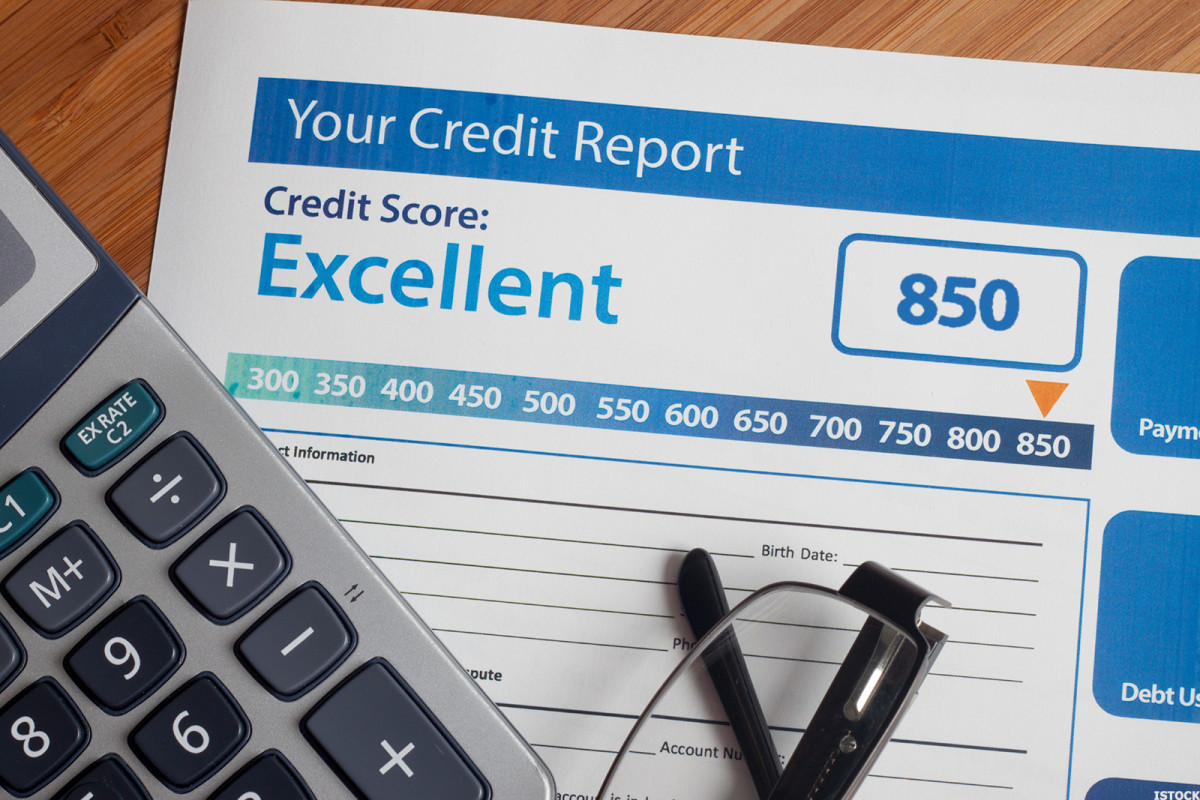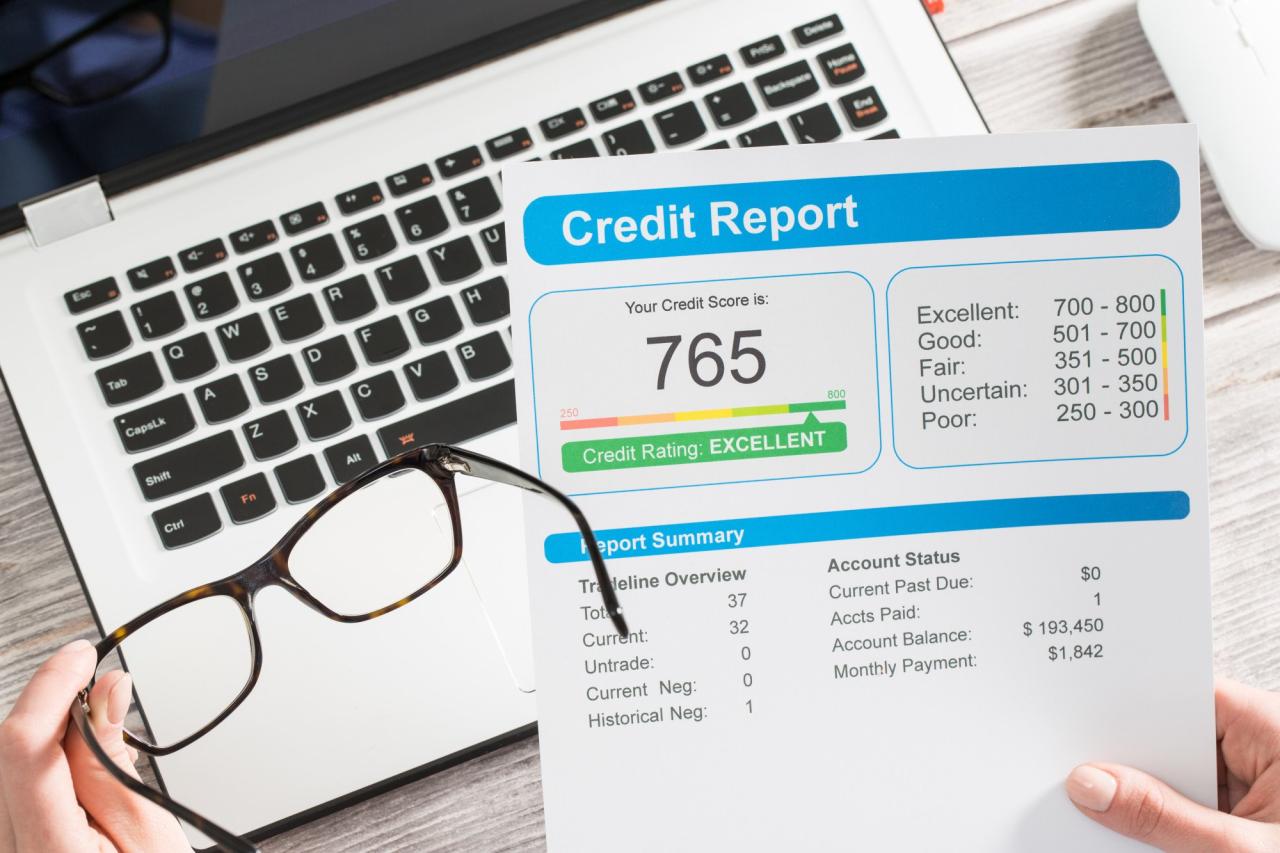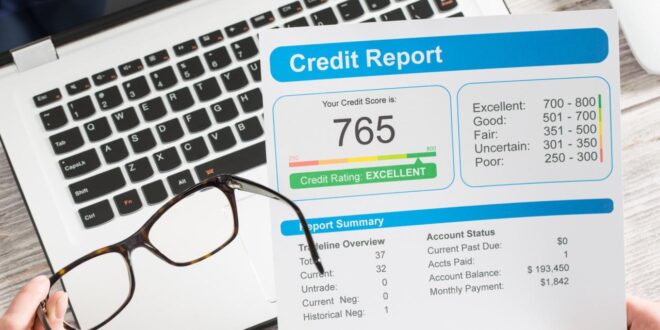Obtain business credit reports to understand your business’s financial health. This report provides a detailed overview of your credit history, revealing valuable insights that can help you secure loans, negotiate better terms with suppliers, and ultimately, build a strong financial foundation for your company.
Business credit reports are like a financial report card for your company. They detail your payment history, credit utilization, and public records, giving lenders and suppliers a clear picture of your financial responsibility. This information is crucial for securing funding, obtaining favorable credit lines, and establishing trust with business partners.
Understanding Business Credit Reports
A business credit report is a detailed document that summarizes a company’s financial history and creditworthiness. It is a vital tool for lenders, investors, and suppliers to assess a company’s credit risk and make informed decisions about extending credit or entering into business relationships.
Purpose of Business Credit Reports
Business credit reports serve several key purposes:
- Creditworthiness Evaluation: Lenders use business credit reports to evaluate a company’s creditworthiness before extending loans, lines of credit, or other forms of financing. A strong credit history indicates a lower risk of default, making the company a more attractive borrower.
- Risk Assessment: Suppliers, vendors, and other businesses use business credit reports to assess the risk of doing business with a company. This helps them determine whether to offer trade credit or extend payment terms.
- Investment Decisions: Investors may use business credit reports to assess the financial health and credit risk of a company before making investment decisions. A strong credit history can signal a company’s financial stability and growth potential.
- Business Partnerships: Business credit reports can be used to evaluate potential partners or joint venture participants. A company with a strong credit history is more likely to be a reliable and financially sound partner.
Key Elements of a Business Credit Report
Business credit reports typically include the following key elements:
- Business Information: Basic information about the company, including its name, address, phone number, and industry.
- Credit History: A record of the company’s past credit transactions, including loans, lines of credit, and trade credit accounts.
- Payment History: Details on the company’s payment performance, including on-time payments, late payments, and defaults.
- Credit Limits: The maximum amount of credit that has been extended to the company by different lenders.
- Public Records: Information about any legal actions, bankruptcies, or liens against the company.
- Trade References: A list of suppliers and vendors who have extended credit to the company.
- Inquiries: A record of recent credit inquiries made by other businesses or lenders.
- Credit Scores: Numerical ratings that reflect the company’s overall creditworthiness, based on factors such as payment history, credit utilization, and credit history length.
Types of Business Credit Reports
There are several types of business credit reports available, each with its own focus and scope:
- Commercial Credit Reports: These reports are comprehensive and provide detailed information about a company’s financial history, creditworthiness, and business operations. They are typically used by lenders, investors, and suppliers.
- Trade Credit Reports: These reports focus on a company’s payment history with suppliers and vendors. They are used by businesses to assess the risk of extending trade credit to a company.
- Specialty Reports: These reports focus on specific aspects of a company’s creditworthiness, such as its environmental performance, social responsibility, or compliance with industry regulations.
How Businesses Use Business Credit Reports
Businesses use business credit reports in a variety of ways:
- Securing Financing: Businesses use credit reports to secure loans, lines of credit, and other forms of financing from lenders.
- Managing Trade Credit: Businesses use credit reports to determine whether to extend trade credit to customers or suppliers.
- Evaluating Partnerships: Businesses use credit reports to evaluate potential partners or joint venture participants.
- Monitoring Creditworthiness: Businesses can use credit reports to monitor their own creditworthiness and identify areas for improvement.
- Making Investment Decisions: Investors use credit reports to assess the financial health and credit risk of companies before making investment decisions.
Obtaining a Business Credit Report

Understanding your business credit report is crucial for securing financing, negotiating favorable terms, and building a strong financial reputation. Obtaining a business credit report is a straightforward process, and there are various methods to choose from.
Major Credit Reporting Agencies
The three major credit reporting agencies that provide business credit reports are:
- Dun & Bradstreet (D&B): D&B is the largest and most comprehensive business credit reporting agency, offering a wide range of reports and services. They collect data from various sources, including businesses, banks, and government agencies.
- Experian: Experian is a global credit reporting agency that provides business credit reports and scores. They offer a variety of products and services, including monitoring, risk management, and fraud detection.
- Equifax: Equifax is another major credit reporting agency that provides business credit reports and scores. They offer a range of products and services, including risk management, fraud prevention, and data analytics.
Methods for Obtaining a Business Credit Report
There are several methods for obtaining a business credit report, each with its own advantages and disadvantages:
- Directly from the Credit Reporting Agency: You can obtain a business credit report directly from the credit reporting agency by visiting their website or contacting them by phone. This method allows you to access a full report with detailed information about your business’s credit history.
- Through a Credit Monitoring Service: Credit monitoring services, such as Credit Karma or Experian Small Business, provide access to your business credit report and score. These services typically offer features such as alerts for changes in your credit report, identity theft protection, and credit score tracking.
- Through a Business Loan Application: When applying for a business loan, lenders often require a business credit report as part of their assessment process. In this case, the lender will typically obtain the report from a credit reporting agency on your behalf.
- Through a Business Credit Reporting Software: There are various software solutions available that provide access to business credit reports, such as Nav or BizCredit. These platforms offer features such as credit score monitoring, credit reporting agency comparisons, and access to financing options.
Step-by-Step Guide for Accessing a Business Credit Report
Here is a step-by-step guide for accessing a business credit report:
- Choose a Credit Reporting Agency: Select the credit reporting agency that best suits your needs and budget. Consider factors such as the comprehensiveness of their reports, the range of services they offer, and their reputation.
- Create an Account: Most credit reporting agencies require you to create an account to access your business credit report. You will need to provide your business information, including your company name, address, and tax identification number.
- Verify Your Identity: The credit reporting agency will likely require you to verify your identity before granting you access to your business credit report. This may involve providing documentation, such as your driver’s license or passport.
- Choose a Report Type: Some credit reporting agencies offer different types of business credit reports, such as a basic report, a comprehensive report, or a customized report. Select the report type that best meets your specific needs.
- Pay for the Report: Most credit reporting agencies charge a fee for accessing your business credit report. The cost varies depending on the type of report and the credit reporting agency.
- Review Your Report: Once you have obtained your business credit report, review it carefully for any errors or discrepancies. If you find any mistakes, contact the credit reporting agency to dispute them.
Factors Influencing Business Credit Scores
Your business credit score is a numerical representation of your creditworthiness, reflecting how likely you are to repay your debts. It is a crucial factor in obtaining loans, securing lines of credit, and even securing favorable business deals. Several key factors contribute to your business credit score.
Payment History
Payment history is the most significant factor influencing your business credit score, accounting for 35% of the score. This reflects your ability to make timely payments on your business obligations, such as loans, credit cards, and utility bills. Late or missed payments negatively impact your score, while consistent on-time payments contribute to a higher score.
- Late Payments: Late payments, even by a few days, can lower your score. A single late payment can remain on your report for seven years.
- Missed Payments: Missed payments are more detrimental than late payments, significantly impacting your score.
- Derogatory Marks: A derogatory mark on your report, such as a charge-off or bankruptcy, can severely damage your credit score.
Credit Utilization
Credit utilization is the percentage of your available credit that you are currently using. It represents the ratio of your outstanding debt to your total credit limit. This factor contributes to 30% of your business credit score.
- High Credit Utilization: A high credit utilization ratio indicates that you are using a significant portion of your available credit, potentially raising concerns about your ability to manage debt.
- Low Credit Utilization: A low credit utilization ratio indicates that you are using a small portion of your available credit, suggesting responsible debt management.
- Recommended Credit Utilization: Aim to keep your credit utilization ratio below 30% for optimal credit health.
Public Records
Public records, such as bankruptcies, tax liens, and judgments, can negatively impact your business credit score. These records are publicly available and contribute 15% to your business credit score.
- Bankruptcy: A bankruptcy filing can significantly lower your score and remain on your report for ten years.
- Tax Liens: A tax lien indicates that the government has filed a claim against your business for unpaid taxes, potentially affecting your creditworthiness.
- Judgments: A judgment against your business, indicating that you have failed to fulfill a financial obligation, can negatively impact your score.
Importance of Business Credit Reports: Obtain Business Credit Report

A business credit report is more than just a document; it’s a reflection of your company’s financial health and reliability. It plays a crucial role in various aspects of your business, influencing your ability to secure financing, build strong relationships with suppliers, and ultimately, grow your business.
Influence on Loan Approvals
Lenders use business credit reports to assess the creditworthiness of a company before approving loans. A strong credit report demonstrates a history of responsible financial management, increasing the likelihood of loan approval and securing favorable terms. Conversely, a poor credit report can lead to loan rejection or higher interest rates, making it more challenging to obtain the necessary funds for business growth.
Role in Securing Business Financing
Business credit reports are essential for securing various forms of business financing, including:
- Bank loans: Banks heavily rely on business credit reports to evaluate loan applications. A good credit score significantly improves the chances of securing a loan with favorable terms.
- Lines of credit: A strong credit history allows businesses to access lines of credit, providing them with flexible funding options for short-term needs.
- Equipment financing: Lenders use business credit reports to determine the risk associated with financing equipment purchases. A positive credit score can lead to lower interest rates and better terms.
- Invoice factoring: Factoring companies evaluate business credit reports to assess the risk of purchasing invoices from businesses. A good credit score can attract better factoring rates and terms.
Impact on Supplier Relationships
Business credit reports also play a significant role in establishing and maintaining strong relationships with suppliers. When suppliers evaluate a potential customer, they often check their business credit report to assess their payment history and financial stability. A positive credit history builds trust and confidence, making it easier to secure favorable terms, such as extended payment terms or discounts.
Benefits of Building a Strong Business Credit History
Building a strong business credit history offers numerous benefits for your company:
- Improved access to financing: A positive credit score opens doors to a wider range of financing options with better terms.
- Enhanced business reputation: A strong credit history builds trust and credibility among suppliers, customers, and potential investors.
- Increased negotiating power: With a good credit score, businesses can negotiate more favorable terms with suppliers, lenders, and other partners.
- Lower borrowing costs: A positive credit history often translates to lower interest rates and fees on loans and lines of credit.
- Better business opportunities: A strong credit score can attract potential investors, customers, and partners, leading to increased business opportunities.
Maintaining a Positive Business Credit Score
A positive business credit score is essential for your company’s financial health and growth. It unlocks access to favorable loan terms, competitive interest rates, and better vendor relationships. Maintaining a strong credit score requires consistent effort and adherence to best practices.
Importance of Timely Payments
Making timely payments on all your business credit obligations is paramount. Late payments can significantly damage your credit score, making it difficult to secure future financing.
- Set up automatic payments to ensure on-time payments for all your credit accounts.
- Establish a system to track all your payment due dates and make payments well in advance.
- Contact your creditors immediately if you anticipate a late payment and explore options for payment arrangements.
Managing Business Credit Utilization, Obtain business credit report
Your business credit utilization ratio, which is the amount of credit you use compared to your available credit limit, is a crucial factor influencing your credit score.
- Aim to keep your credit utilization below 30%, ideally lower.
- Avoid maxing out your credit cards or lines of credit, as this can negatively impact your score.
- Regularly monitor your credit utilization and adjust your spending habits as needed.
Impact of Resolving Negative Credit Entries
Negative credit entries, such as late payments or defaults, can significantly harm your business credit score. Addressing these issues promptly is vital for improving your creditworthiness.
- Contact your creditors to discuss payment arrangements or dispute inaccurate entries.
- Consider seeking professional credit repair services to assist with resolving negative entries.
- Monitor your credit report regularly for any errors and take immediate action to correct them.
Monitoring Business Credit Reports

Proactively monitoring your business credit reports is crucial for maintaining a healthy financial standing and ensuring your business’s access to credit. Regularly reviewing your credit reports helps identify potential issues early on, allowing you to take corrective measures before they negatively impact your business.
Benefits of Regular Monitoring
Regularly monitoring your business credit reports offers several benefits, including:
- Early Detection of Errors: Monitoring your credit reports allows you to identify and address any inaccuracies or errors that might be affecting your credit score. These errors could range from incorrect account information to fraudulent activity. Addressing these errors promptly can help improve your credit score and prevent further damage.
- Prevention of Identity Theft: Business credit reports can be targets for identity theft. Monitoring your reports regularly allows you to spot any suspicious activity, such as the opening of unauthorized accounts or unusual credit inquiries, which could indicate identity theft. This early detection can help you take immediate steps to protect your business and mitigate potential financial losses.
- Improved Access to Credit: A clean and accurate business credit report can improve your access to credit. Lenders often rely on credit reports to assess the creditworthiness of businesses. By maintaining a positive credit history through regular monitoring, you can demonstrate financial responsibility and increase your chances of securing loans, lines of credit, or other financing options.
- Competitive Advantage: Monitoring your business credit reports allows you to track your credit score over time and compare it to industry benchmarks. This information can help you identify areas for improvement and maintain a competitive advantage in the marketplace. A strong credit score can be a valuable asset in attracting investors, securing partnerships, and building a solid reputation.
Methods for Effective Monitoring
Several methods can be employed for effective monitoring of business credit reports:
- Obtain Free Annual Reports: The Fair Credit Reporting Act (FCRA) entitles businesses to one free credit report annually from each of the three major business credit reporting agencies: Experian, Equifax, and Dun & Bradstreet. You can request these reports online or by mail.
- Utilize Credit Monitoring Services: Credit monitoring services provide real-time alerts and notifications about changes to your business credit reports. These services can track credit inquiries, new account openings, and other significant events, allowing you to address potential issues promptly.
- Set Up Regular Reminders: Setting up calendar reminders or using a credit monitoring app can help you stay on top of your credit monitoring schedule. This ensures that you don’t miss the opportunity to review your reports and address any potential issues.
Addressing Errors and Inaccuracies
If you discover errors or inaccuracies in your business credit report, it is crucial to take immediate action to rectify them. Here’s how you can address these issues:
- Contact the Credit Reporting Agency: File a dispute with the credit reporting agency directly, providing evidence to support your claim. The agency will investigate the dispute and update your report accordingly if the error is found to be valid.
- Contact the Creditor: If the error stems from a specific creditor, contact them directly to correct the information. Once the creditor confirms the error, they will typically notify the credit reporting agency to update your report.
- Maintain Documentation: Keep detailed records of all communication with the credit reporting agencies and creditors, including dates, times, and any supporting documentation. This documentation can be helpful in resolving disputes and demonstrating your efforts to correct the errors.
Role of Credit Monitoring Services
Credit monitoring services play a vital role in protecting your business credit by providing:
- Real-Time Alerts: Credit monitoring services send immediate alerts and notifications about any changes to your business credit report, allowing you to address potential issues promptly.
- Early Detection of Fraud: These services can detect fraudulent activity, such as the opening of unauthorized accounts or suspicious credit inquiries, enabling you to take immediate action to protect your business.
- Comprehensive Reporting: Credit monitoring services provide access to your credit reports from all three major business credit reporting agencies, giving you a complete picture of your credit standing.
- Identity Theft Protection: Some credit monitoring services offer additional identity theft protection features, such as credit freeze options and fraud resolution support.
Wrap-Up
Understanding business credit reports is essential for any business owner looking to build a solid financial foundation. By monitoring your credit score, making timely payments, and utilizing credit responsibly, you can cultivate a positive business credit history that opens doors to opportunities and enhances your company’s financial standing.
Top FAQs
How often should I check my business credit report?
It’s recommended to check your business credit report at least annually, or even more frequently if you’re actively seeking financing or making major business decisions.
What if there are errors on my business credit report?
If you discover errors, you can dispute them with the credit reporting agency. Provide documentation to support your claim, and the agency will investigate and make necessary corrections.
How long does it take to build a good business credit score?
Building a strong business credit score takes time and consistent responsible financial practices. It’s generally recommended to establish a business credit history for at least 6-12 months to see significant improvements in your score.
 Norfolk Publications Publications ORG in Norfolk!
Norfolk Publications Publications ORG in Norfolk!

